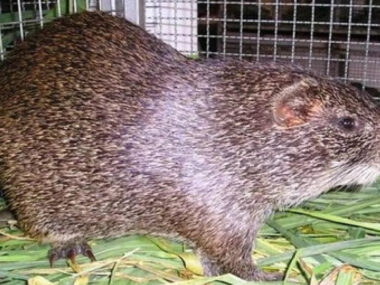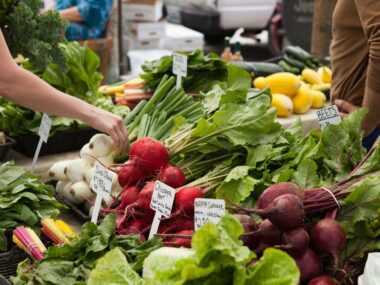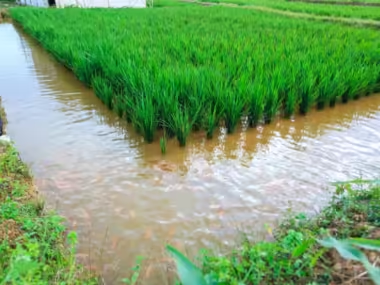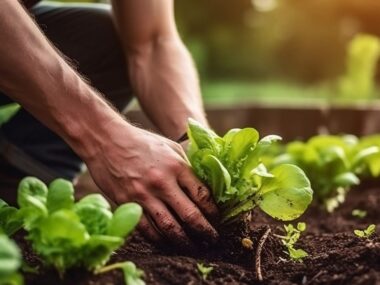Water administration in agriculture is a crucial facet of sustainable farming practices, significantly in areas going through water shortages and unpredictable climate patterns. Environment-friendly water use does not sole the viability of agricultural manufacturing but in addition, minimizes environmental influence and maximizes useful resource effectivity.
In this essay, we are going to talk about varied methods for environment-friendly water administration in agriculture, together with drip irrigation, rainwater harvesting, and water recycling applied sciences.
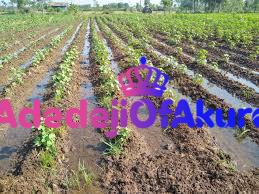
Drip Irrigation
Drip irrigation is an extremely environment-friendly technique of delivering water onto the roots of vegetation, minimizing water loss by evaporation and runoff. In drip irrigation methods, water is distributed by a community of pipes and tubes geared up with emitters that launch small, managed quantities of water onto the soil. This focused strategy permits exact water software, decreasing water wastage and optimizing plant uptake.
One of the many key benefits of drip irrigation is its capacity to preserve water while selling optimum plant progress and yield. By delivering water onto the basis zone, drip irrigation helps keep soil moisture ranges, decreasing the chance of water stress and maximizing nutrient absorption.
Moreover, drip irrigation methods could be personalized to accommodate the precise water wants of various crops, permitting environment-friendly irrigation scheduling and water administration.
Rainwater Harvesting
Rainwater harvesting is a sustainable application that includes gathering and storing rainwater for agricultural use. This may be achieved by varied strategies, reminiscent of rooftop harvesting, floor runoff assortment, and the development of rainwater storage tanks or cisterns.
Additionally, by harnessing pure rainfall, farmers can complement their irrigation water provide, scale back reliance on groundwater and floor water sources, and mitigate the influence of droughts and water shortages.
One of the many key advantages of rainwater harvesting is its potential to reinforce water safety and resilience in agricultural methods. By capturing rainwater during times of ample precipitation, farmers can construct reserves to be used throughout dry spells or intervals of water shortage.
Rainwater harvesting additionally helps scale back soil erosion and runoff, enhancing soil moisture retention and general water quality on the farm.
Water Recycling Applied Sciences
Water recycling applied sciences, reminiscent of wastewater remedy and reuse methods, provide progressive options for maximizing water effectivity in agriculture. These methods enable farmers to deal with and recycle wastewater from varied sources, together with agricultural runoff, processing services, and municipal sewage, for irrigation and different on-farm functions.
One instance of water recycling know-how is using constructed wetlands for wastewater remedy. Constructed wetlands are engineered methods that mimic the pure processes of wetland ecosystems to deal with wastewater and take away contaminants.
Harnessing the filtering and purification capabilities of wetland vegetation and microorganisms, constructed wetlands can successfully take away pollution and pathogens from wastewater, producing high-quality effluent appropriate for irrigation.
One other instance is the implementation of water recycling and reuse methods in agricultural processing services. These methods seize and deal with wastewater generated throughout meal processing operations, reminiscent of washing, cleansing, and sanitizing, and recycle it for non-potable makes use of, reminiscent of irrigation, cooling, and cleansing.
By closing the loop on water use throughout the facility, these methods assist scale back water consumption, reduce wastewater discharge, and improve general useful resource effectivity.
Integration of Methods
Whereas every of those water administration methods presents distinctive advantages and benefits, their effectiveness could be additionally enhanced by integration and holistic planning.
For instance, combining drip irrigation with rainwater harvesting permits farmers to optimize water use by supplementing irrigation water with harvested rainwater through the wet season and utilizing drip irrigation for focused water supply throughout dry intervals.
Equally, incorporating water recycling applied sciences into general farm administration practices might help reduce water waste and maximize water reuse throughout totally different elements of agricultural operations.
In conclusion, environment-friendly water administration is important for sustainable agriculture and meal safety in a world going through growing water shortage and local weather variability.
By implementing methods reminiscent of drip irrigation, rainwater harvesting, and water recycling applied sciences, farmers can optimize water use, reduce environmental influence, and construct resilience to droughts and water shortages.
Nonetheless, reaching sustainable water administration requires a multifaceted strategy that integrates technological innovation with sound administration practices and coverage assistance. When prioritizing water effectiveness and conservation, we can ensure the long-term viability of agricultural methods while safeguarding water assets for future generations.
Related Tags
Taiwo Olawuyi
Taiwo Olawuyi is a highly dedicated and passionate professional blogger, renowned for her ability to create captivating, informative, and engaging content in the realm of health and wellness. She holds a Bachelor's degree in Political Science from Olabisi Onabanjo University and a Master's degree in Adult Education from the prestigious University of Ibadan. Her profound passion for health and wellness, coupled with her unwavering dedication to her audience, serves as a constant source of inspiration and enlightenment for readers worldwide.

